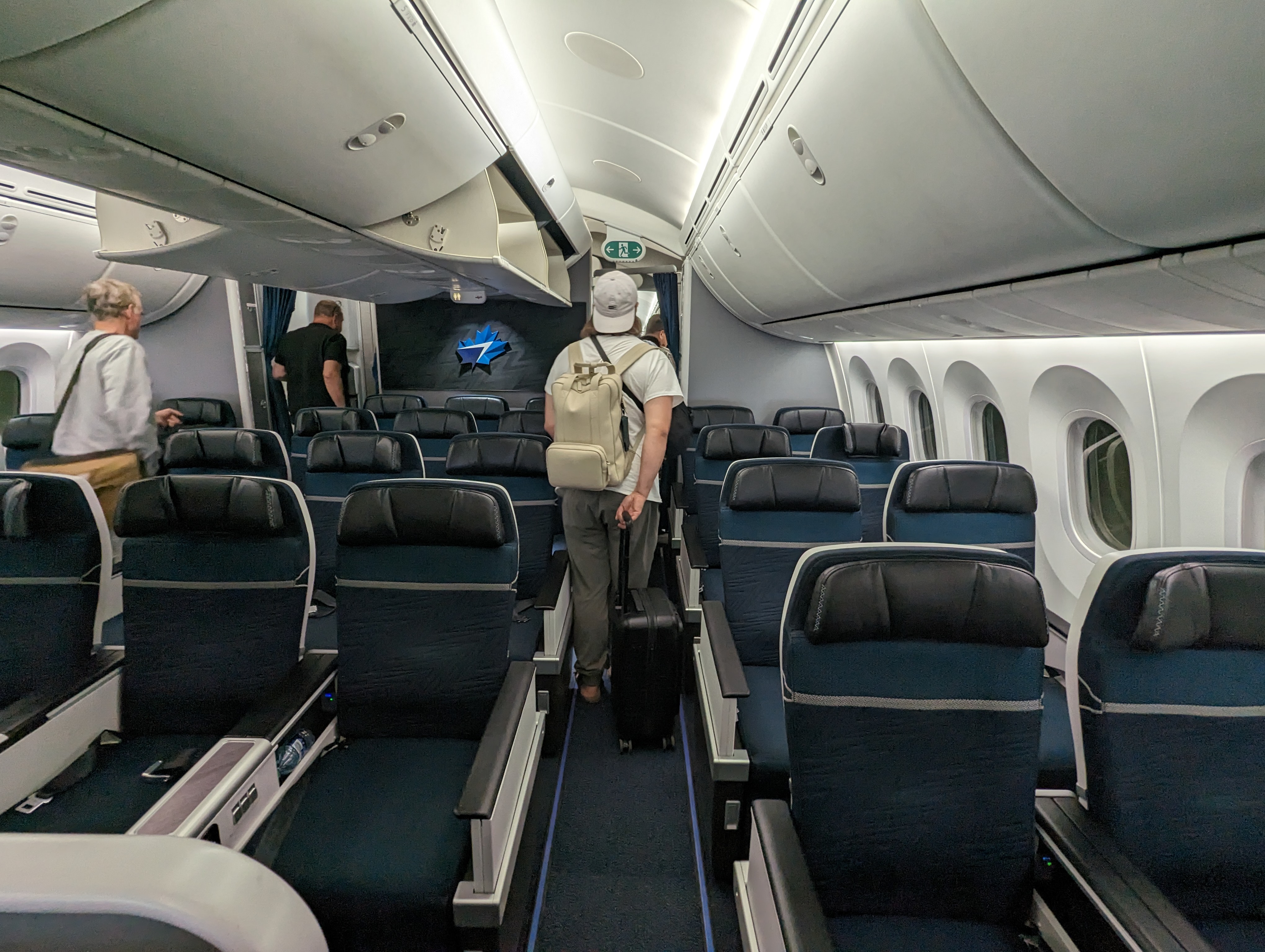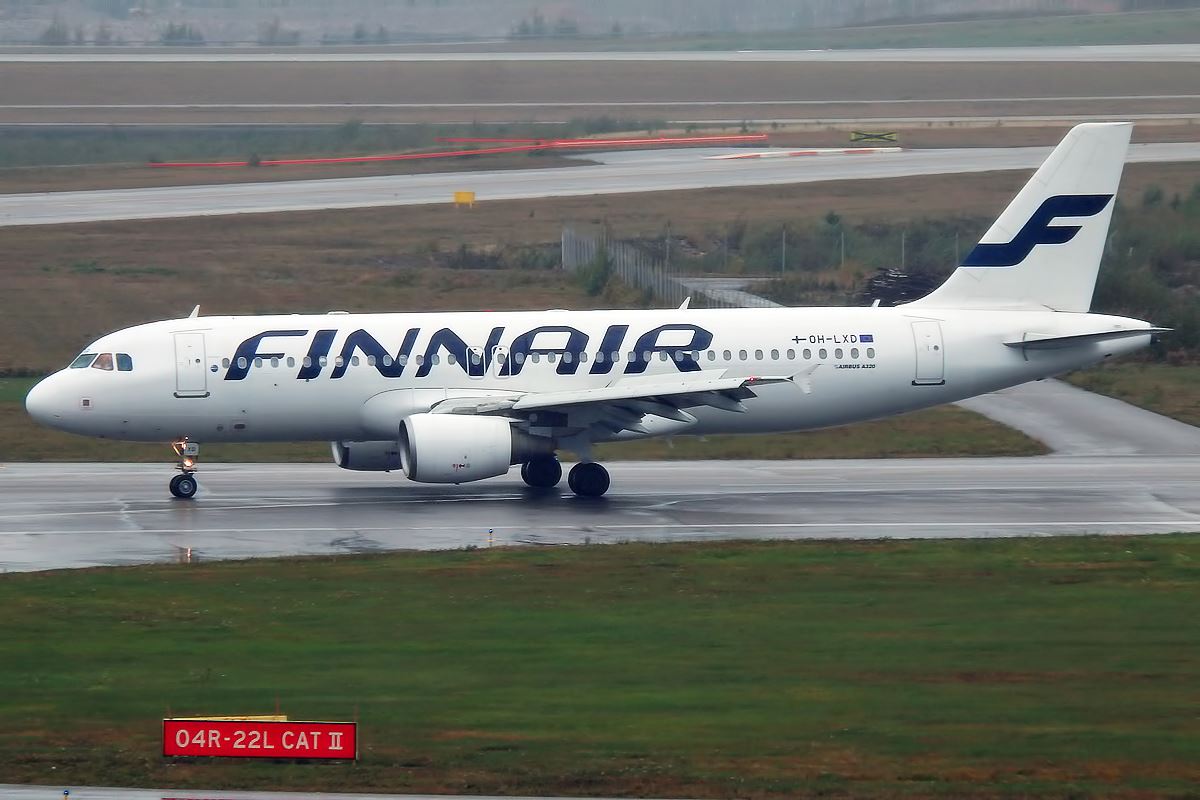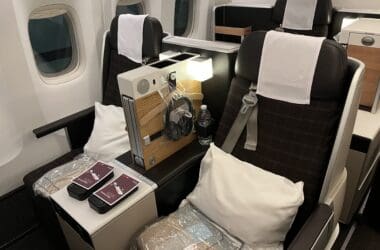While not knowing the local language isn’t usually a deterrent for me when traveling internationally, learning at least the basics is something I try to do. I will freely admit that I love learning new languages. This sentiment is not shared by everyone. It isn’t exactly a walk in the park to learn language before traveling. But I find it immensely helpful.
My love for new languages started while learning Spanish during college. I finally found the gumption to jump into conversation with my coworkers at the time, most of whom were from the Mexican state of Oaxaca. I was laughed at, of course, and made countless mistakes. But they did ultimately help me learn, and my Spanish improved dramatically. Getting over the self-consciousness was the biggest hurdle.
Fast forward several years, and we’ve adopted three kids from Costa Rica. The language barrier wasn’t a major issue for us, as my Spanish came back quickly after being immersed in it again for just a couple weeks. Ironically, my daughter now refuses to speak Spanish with me, even during our trip last year to Argentina and Uruguay!
But I still retain enough that traveling to Spanish-speaking countries is easy. I’ve also attempted to learn a bit of a few other languages before our travels, including French, Italian, Russian (ages ago) and Chinese. Any time we plan to visit a new country, I like to learn some language basics. Here’s why:
It’s A Matter of Respect
Learning the language of the place to which you’re traveling shows respect for the people and culture. Remember, you’re in their territory. They shouldn’t have to cater to you. Instead, you cater to them. While I do expect to easily communicate in English at major international brand hotels, I don’t expect much beyond that. Learning enough of the language to be able to ask for basics, say ‘please’ and ‘thank you’, and other necessities of conversation is essential. If I get to the point I could carry on a basic conversation, it’s a bonus.
It’s my goal to lead into any exchange in the native language. However, the person with whom I am conversing often switches to English. I’d rather let them do this than initiate in English and expect that they’ll follow me. This was how I typically tried to converse in Paris, unless the person flat out greeted us with a “hello”. I admittedly have awful French. With years of Spanish under my belt and an understanding of Latin roots, I can piece together the gist of what I read. But conversing is hard. I’m working at it. And unlike my experiences in Latin America speaking Spanish, the French don’t tend to be all that helpful when you attempt to speak with them.
Before we traveled to China in late 2018, I tried to learn some Chinese basics as well. A month of Duolingo meant that I could recognize about three dozen characters and say some very basic things like “hi” and “thank you”. Even so, numbers and prices were about the only thing I could properly communicate. Overall, I failed. The tonal nature of Chinese eludes me. But I was still happy I made an attempt. I’d rather try to communicate in the local language rather than assume anyone will understand English.
For Those Critical Situations
When my older two kids and I visited Beijing, we had a near-emergency. My son almost got separated from my daughter and I on the subway, and it was at that point that I enacted some new rules. had he actually been whisked away from us, it would have been a struggle to find someone to whom I could explain the situation.
We also made a mistake in Italy back in 2016. By we, I mean I bought us tickets to the wrong train station in Rome. We ended up across the river from where we needed to be, and I tried to ask a couple which bus we needed to use to get back to our hotel. I knew just enough to piece together the route number. Our trip to Italy was one time I really wish I would have studied more, as it was nearly impossible to communicate. Turns out that knowing Spanish gives you some insight into what you’re reading. But Italian is different enough that I couldn’t possibly converse!
Make sure you study some basics for emergency situations. You’ll never know when you’ll need to use it!
It Makes For a More Immersive Experience
Learning the local language opens the door to truly begin to be immersed in the culture wherever you’re visiting. While some countries have a high percentage of the population that is English-proficient (The Netherlands, for example), most do not. You’ll be unable to communicate with the bulk of the populace unless you learn some of their tongue. The ability to ask a few simple questions and understand responses let’s you engage with the local people and culture in a way that you would not if all you have to rely on is English.
When I was on a trip to rural Guatemala, many of the kids we encountered wanted to talk with our group. If none of us had been able to speak Spanish, we would not have been able to enjoy any conversation with them. This would have meant missing out on some of the best parts of the whole trip. Besides being respectful of them (point #1), it opens the door for experiences and relationships you otherwise might not make.
It’s Tough Work to Learn Language Before Traveling
Learning even a little of a new language is certainly difficult, but I think it is well worth the effort. There are certainly countries for which I’ll make an exception. Finland was one. Most Finns speak at least some English, and I only encountered one that wasn’t able to converse with me in Helsinki. Other countries I’d probably skip are The Netherlands and Denmark, where the majority speak some English.
It’s true that you’re at an advantage as a native English-speaker. If you need to focus on learning just one or two other languages rather than dabbling a bit each time you travel, I highly suggest you focus on an easy-to-learn romance language that has widespread use, such as Spanish or French. For trips that may just be one-time endeavors, such as a week in Thailand, I’d just plan to learn a little Thai before I visit.
How about you? Do you make an effort to learn language before traveling?















An admirable goal, although there are some difficulties. I speak a little bad Spanish and bad French but unlike you don’t have a natural aptitude. Then there’s the sheer variety of languages, which can get really confusing. I was fortunate enough to travel a lot in the last year or so, but learning Croatian, Balinese, Bhasa, Hungarian, Slovak, German, Vietnamese, and Cantonese would be a bit much for any remotely normal human. Learning them at the same time would be worse. Like it or not, English has become the lingua franca of most of the world. This doesn’t in any way diminish your amazing accomplishments but most people don’t have your gift. Personally I try to learn a few words no matter what, starting with thank you, then go from there. On a separate note, why does your daughter refuse to speak Spanish to you? Surely yours can’t be that bad?
I get that. I’m not saying you need to be fluent. More than anything, I think it is the effort that matters.
The “mixing” in the brain can be confusing for sure. I butcher French. BUTCHER. It’s bad. But that’s likely because I’ve had Spanish rolling off my tongue for enough years that some people don’t instantly ID me as an American. Somehow the Spanish pronunciation moves over into the French compartment. It’s rough.
My daughter likes to blame it on the fact that I “sound funny” to her. Which I might. But I’m probably in the 90%+ percentile of native English-speaking Americans when it comes to good Latin American Spanish pronunciation. My guess is that underlying everything is an intense self-consciousness.